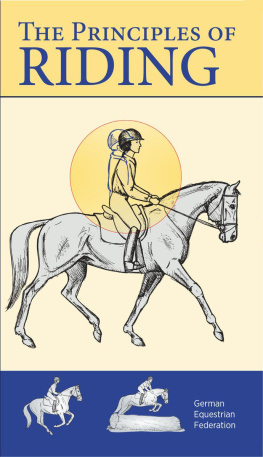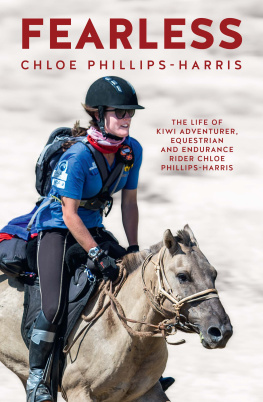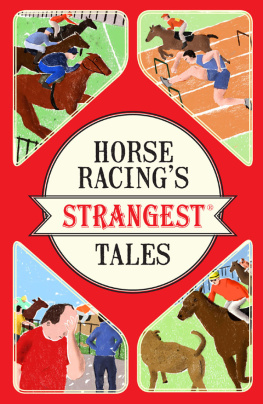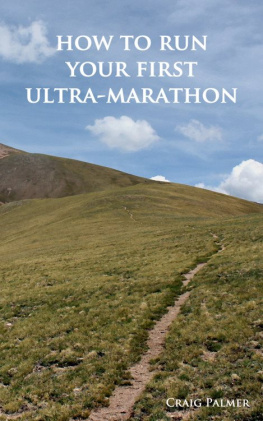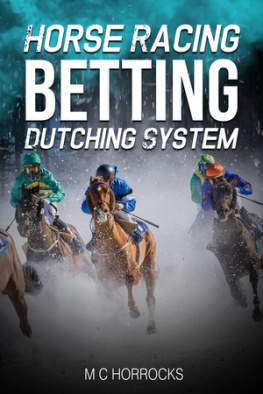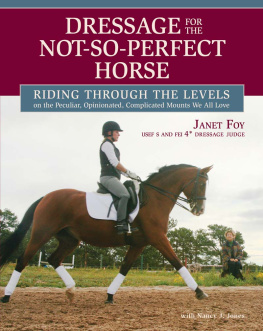Table of Contents
Guide
Letters of deep gratitude keep forming in my head
To Robyn Drury and Jonathan Lee: Im a cavorting-snorting foal at having been edited by the both of you.
To Zoe Ross, who landed Rough Magic the loveliest homes:
Catapultthanks to Andy Hunter, Pat Strachan, Jennifer Abel Kovitz, Megan Fishmann, Lena Moses-Schmitt, Wah-Ming Chang, and everyone on the wondrous team.
Eburythanks to everyone, especially Sarah Bennie and her team.
To Josephine Rowe, for appreciating each pony and leading them to Jonathan.
To Brittany Newell, for being provocative.
To Parwana Fayyaz, Jamie Helyar, and Sadhana Senthilkumar for inspiration and affection.
To Eavan Boland, John Evans, and Tobias Wolff for new beginnings; and to Dana Kletter (you can be self-deprecating and British all day long but at some point youve got to hit hard and say something real).
To Aishwary Kumar, for teachings unfathomable.
To Harriet Clark, Shatra Galbadrah, Sue Mott, Katy Willings, and, depthlessly, to Neal Gething.
To each sister and brother who read this through and offered advice.
To anyone who let me be lonely, and to those who did not.
To so many of the above for their attentiveness, often from afar, when Ive been unwell. To my doctors of all kinds.
To those who homed me beyond their callthe Dorset boghills and their Hugheses, Kildale and her Sutcliffes, Anita George-Carey on the river, the Chalabys all over, and the Alegrias & animals in California. You have each allowed me to write in a place where places can exist. Immeasurable love to the people I grew up with, my family, and to my forbears.
To all the nonhuman forces, especially horses, Appleshaw, the Pacific, the steppe, the Plains and elsewhere, for their care.
This book follows the brief experience of a foreigner in Mongolia. If you would like to read further and deeper into Mongolia, there is some brilliant Mongolian literature available in translation.
Ive especially enjoyed the work of lziitgs Luvsandorj, whose witty short story Aquarium, translated by Sainbayar Gundsambuu and K. G. Hutchins, was published by Words Without Borders and can be found on that organizations website. Thirteen of lziitgss poems, many drawing from city life, were translated by Sh Tsog and have been published on the Best American Poetry website in a series of posts by Simon Wickham-Smith titled Modern Mongolian Literature in Seven Days. The series also features work by poets such as Ayurzana Gun-Ajaav and Mend-Ooyo Gombojav. The End of the Dark Era, a recent collection by the adventurous poet Tseveendorjin Oidov (translated by Simon Wickham-Smith), is the first book of Mongolian poetry to be published in the United States.
For more on steppe life, The Blue Sky is a stunning novel by Galsan Tschinag (translated from German by Katharina Rout) charting the daily rhythms of nomadic life. Byambasuren Davaas 2005 film, In the Cave of the Yellow Dog, is now also a book coauthored with Lisa Reisch (translated into English by Sally-Ann Spencer).
In the English language, Uuganaa Ramsays memoir, Mongol, shifts between Scotland, Ulaanbataar, and the steppe. A Monastery in Time: The Making of Mongolian Buddhism, by Caroline Humphrey and Hurelbaatar Ujeed, is an academic study of Mongolian Buddhism. Time, Causality and Prophecy in the Mongolian Cultural Region, edited by Rebecca Empson, is a fascinating collection of essays by a range of authors.
It was May 2013 when I was cooped up in an attic in Austria, au pairing for a family with six Ferraris. They lived in a converted hotel in the jaws of an Alpine valley.
Lara? Larah!
Every morning the mother shrieked my name up the endless floors. Time to feed the baby!
I had taken the role to practice my German, but she only spoke in English. My jobs varied from sitting with the toddler to vacuuming up the dead skin that snowed from his fathers bottom.
The family never left their house except to get in their cars, which they kept tucked up in the garage. They viewed their valley through window frames as you would a photograph. So sedentary a lifestyle in such physical surroundings made me itch. At night I hatched plans to creep up the mountain and slide down the other side into Switzerland, yet the mother looked appalled when I so much as suggested running to the church and back.
By the time she sacked me a month later, my body was rusty and yearning for usage. I returned to the silent butterflies of an England on the brink of summer, seeking an experience unlike any Id had before. In theory, this ought not to have been difficult. The most exciting moment in my eighteen years had been collecting chickens from Dorset on the train and wrapping them up in wine crates for Christmas presents.
The next month, June, marked a year since my release from high school. Fleeing the red bricks had been my dream for yearsat fourteen, I had thought of myself as the finished article, ready to either have babies or break free (to where I couldnt say, though for many years I had been fixated on becoming a burglar). Despite my conviction that more education would poison me like pesticide on a lush forest, I had remained in London until I passed my final exams. Strangely, the dissolution of structure thereafter unnerved me.
What was it about turning into an adult? The color drained from the days and life became a calendar. I floated in a debris of possible dates and implausible plans, with neither the funding nor the fervor to propel me onwards. Friends were busy with jobs or university, inclined to holiday on beaches rather than accompany me to Kyrgyzstana place I fantasized about. Meanwhile, I hadnt heard back from my application to go organic farming in Wales, nor from the orphanage placement in Ethiopia. Dead-end jobs and equestrian competitions came and went. I moved through the month of my birthday without any fixed direction.
It was a warm city day when, for the umpteenth time, I cast my rod into the depths of Google as if the internet might contain my future. After opening and abandoning endless tabs, I brought up the page of a horse race.
The passing London Underground train shook the building as I leaned into the photographlong-maned ponies streaming over green steppes, space poured wide and freein Mongolia. The open-voweled sounds of the word matched the freedom the country conjured in my mind. I couldnt place Mongolia in history, nor could I place it on the map. The magnolia tree outside the window had passed full bloom; its pink petals were turning brown on the pavement. For a while my head merged these two wordsMongolia, magnolia; Mongolia, magnolia.
I had spotted the Mongol Derby online many years before, but the entry fee was exorbitant (around $6,000 at the time) and I knew Id never afford it, at least not until I was towing some dull job along in my thirties. Sadly, the price was now even higher, thirty riders were already signed on, and the entry deadline for the August race had passed. I moved the mouse to quit the page, blinking back to the ponies for a pause.
Here was a truly peculiar invention: a 1,000-kilometer race on twenty-five wild ponies, a new steed for every 40-kilometer stage to ensure the endurance fell on the humans, not the horses. A Pony Expressstyle format that mimicked Chinggis Khans postal system but seemed from afar more like a perfect hodgepodge of Snakes and Ladders and the Tour de France on unknown bicycles. A competition they deemed the worlds longest and toughest horse race.
I moved the mouse back into the page and worked out there were seven weeks until the start gun. The entry portal seemed to still be open, despite the deadline having passed.
Mustnt squish the mole that lives in my heart.
Next page


